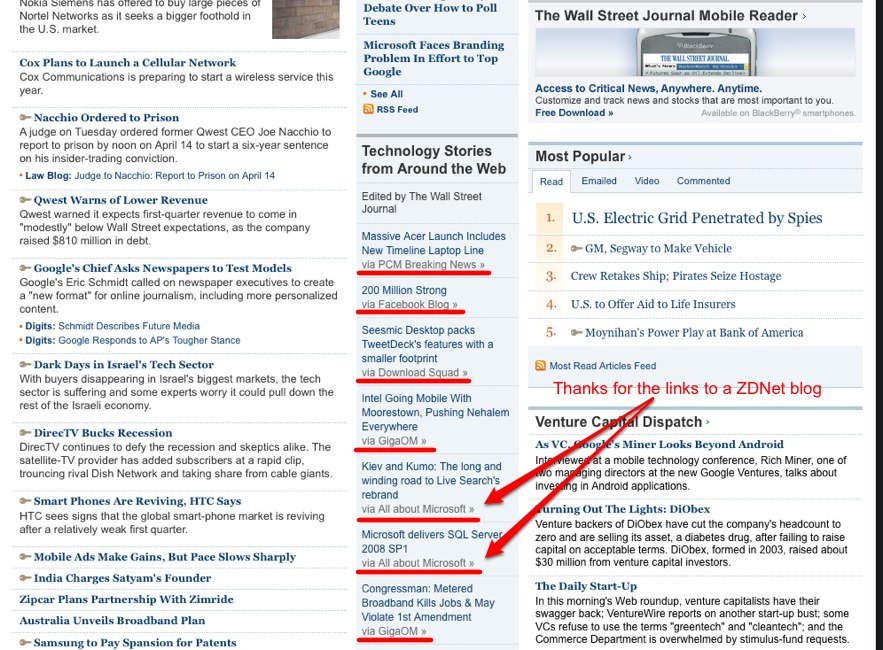We're all aggregators. Get over it, AP.

One of the things to remember about the Associated Press is that it's run by newspaper executives, those same decision-makers who largely resisted the influence of technology on their business models and are now dealing with the fallout of layoffs, bankruptcies and complete closures because of it.
It should come as no surprise then that those same folks, wearing their AP name tags, are now threatening legal action against news aggregating sites that post snippets of news stories written by the AP and its member newspapers.
Why won't the AP recognize that news aggregation is a 21st Century form of distribution and that the old method of throwing a dead-tree collection of yesterday's news on the front porch is one that's headed for the history books.
Also see: AP eyes news aggregators; Risks exposing its lack of value add
Oh wait. Maybe they do recognize the importance of news aggregation. There are AP-member newspapers - including big names like the New York Times - that are aggregating news from other sources on their sites, as well. Just today, the Wall Street Journal's Web site included links to two blogs on ZDNet's All About Microsoft blog under the section heading: Technology Stories from Around the Web. (click on image)
Gabe Rivera, who founded the TechMeme news aggregation site, tells CNET in a post today that all benefits for having content quoted and linked from around the Web are clear. It sends traffic to their sites. Said Rivera:
For AP and News Corp. to discourage quoting is a clue that they don't really get the Web and are in danger of shooting themselves in the foot.
Need another example? TechCrunch reports today that an AP executive threatened an affiliate radio station - an affiliate! - for embedding an AP video from its official YouTube page on the station's site. Apparently, the executive - when told of embed codes for YouTube videos - was unaware that anyone - affiliate or not - could post those video on a Web site with that code. The executive is reportedly now looking into that. TechCrunch's Erick Schonfeld sums it up nicely:
A.P.’s executives and lawyers are beginning to match their counterparts in the music industry for cluelessness.
These days, we're all news aggregators. I aggregate plenty of news from sites all over the Web on this site. Why? Sure, it provides some link love to my journalistic brethren but it also offers my readers some the opportunity to dig in deeper into a topic, to read a different perspective, to obtain some historical background and, in some cases, go straight to the original source.
Case in point: I linked to my CNET colleague Greg Sandoval above - but I didn't "steal" his story. I offered one excerpt from a quote that he obtained (giving him credit) and teased his story enough so that you readers might want to click the link and read it. I also linked to the TechCrunch post because I thought some of you might want to read it, too.
It's the same reason I share news links with my Facebook friends and Twitter followers. I like to share interesting news - no matter where it came from. Is that so terrible?
The AP needs to stop with the legal threats and focus on how wire services and newspapers are going to compete in this new world of news distribution. If the AP keeps holding on to an outdated business model, it won't be long until its own members are writing its obituary.
Also see: Google's Schmidt carefully scripted at newspaper powwow
